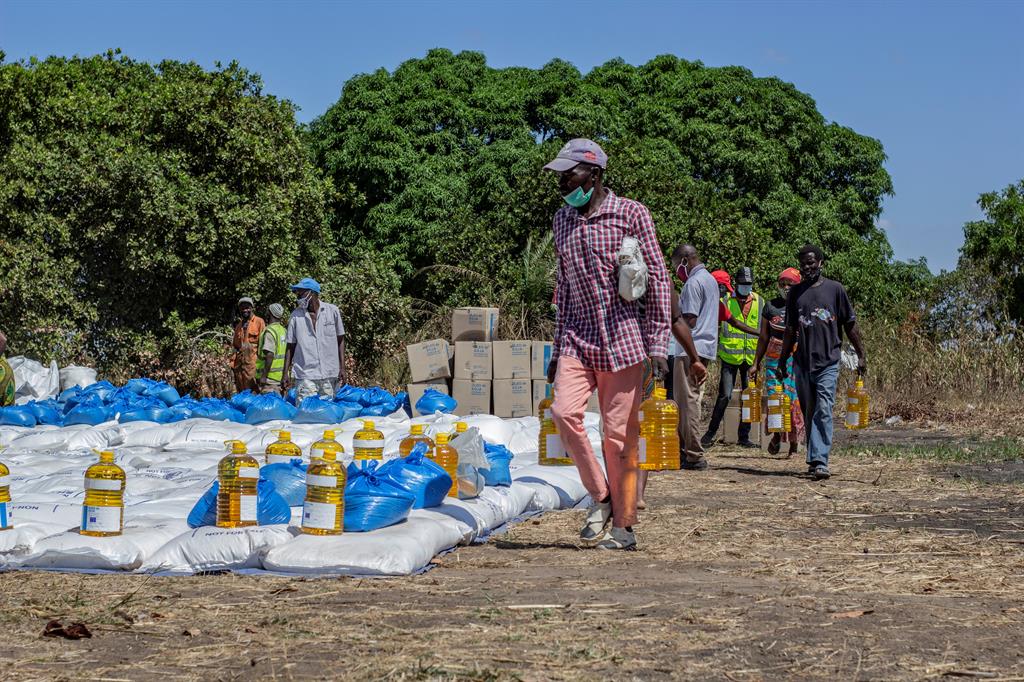300 000 Mozambicans flee homes
THEMBELIHLE MKHONZA
JOHANNESBURG
The United Nations World Food Programme (WFP) has raised concerns about the escalating conflict and deteriorating food security situation in Mozambique's northern Cabo Delgado province, which has seen more than 300 000 people flee their homes and abandon their crops.
Since 2017, Cabo Delgado has experienced attacks by suspected Islamist insurgents, displacing communities who have sought refuge in other provinces such as Nampula and Niassa. These attacks have led to the loss of lives and have severely damaged infrastructure.
The growing insecurity and poor infrastructure have made it harder to reach out to people in need, and the Covid-19 pandemic has made the crisis even more complex, WFP representative in the southern African country Antonella D'Aprile said.
“We are deeply concerned about the unfolding humanitarian situation in Cabo Delgado where conflict and violence have left people without access to food and livelihoods,” she said.
According to the latest findings from famine early warning system FEWSNET, communities will continue to face 'crisis' levels of food insecurity into early 2021.
Chronic malnutrition
Cabo Delgado has the second highest rate of chronic malnutrition in the country with more than half of children aged under five chronically malnourished. Any additional shocks could rapidly worsen the situation, especially for women and children, the WFP said.
The UN agency said it urgently required US$4.7 million per month to assist those internally displaced, warning that without this, it would be forced to reduce food rations from as early as December.
Thousands of refugees have crossed into neighbouring Tanzania, deepening concerns among the international community about the regionalisation of the conflict.
Cabo Delgado is currently recording the second-highest number of Covid-19 cases in Mozambique and the displacement of residents has the potential of accelerating the spread of the virus.
WFP, in collaboration with the government, plans to reach 310 000 people each month in the Cabo Delgado, Nampula and Niassa provinces with aid.
-Nampa/ANA
JOHANNESBURG
The United Nations World Food Programme (WFP) has raised concerns about the escalating conflict and deteriorating food security situation in Mozambique's northern Cabo Delgado province, which has seen more than 300 000 people flee their homes and abandon their crops.
Since 2017, Cabo Delgado has experienced attacks by suspected Islamist insurgents, displacing communities who have sought refuge in other provinces such as Nampula and Niassa. These attacks have led to the loss of lives and have severely damaged infrastructure.
The growing insecurity and poor infrastructure have made it harder to reach out to people in need, and the Covid-19 pandemic has made the crisis even more complex, WFP representative in the southern African country Antonella D'Aprile said.
“We are deeply concerned about the unfolding humanitarian situation in Cabo Delgado where conflict and violence have left people without access to food and livelihoods,” she said.
According to the latest findings from famine early warning system FEWSNET, communities will continue to face 'crisis' levels of food insecurity into early 2021.
Chronic malnutrition
Cabo Delgado has the second highest rate of chronic malnutrition in the country with more than half of children aged under five chronically malnourished. Any additional shocks could rapidly worsen the situation, especially for women and children, the WFP said.
The UN agency said it urgently required US$4.7 million per month to assist those internally displaced, warning that without this, it would be forced to reduce food rations from as early as December.
Thousands of refugees have crossed into neighbouring Tanzania, deepening concerns among the international community about the regionalisation of the conflict.
Cabo Delgado is currently recording the second-highest number of Covid-19 cases in Mozambique and the displacement of residents has the potential of accelerating the spread of the virus.
WFP, in collaboration with the government, plans to reach 310 000 people each month in the Cabo Delgado, Nampula and Niassa provinces with aid.
-Nampa/ANA





Comments
Namibian Sun
No comments have been left on this article